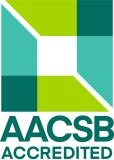Economics: Behavioral Economics
Address economic problems and issues related to human behavior and behavior change. Become an economist trained to consider both the economics and the psychology of behavior and how it can be affected by policy and strategy. This is a track of the MSc Economics.
in 2022/2023
MSc Economics including all tracks
National Student Survey 2023, MSc Economics including all tracks (n=41)
Program and courses
Address economic questions revolving around behavior and behavioral change.
- Starting point: individuals are not rational, self-interested maximizers, but behave and make decisions based on a limited capacity to process information and preferences that include a regard for social norms, such as fairness and reciprocity.
- Address important behavioral questions, such as:
- How to encourage households to waste less food?
- How to prevent fraud in organizations?
- How to stimulate employees to cooperate efficiently?
- How to foster trust in online markets? - Combine insights from economists, psychologists and marketers cooperating in the Tilburg Institute for Behavioral Economics Research (TIBER).
- This is a track of MSc Economics. You can choose to follow the main program or one of the tracks.
Typical courses are:
- Economics and Psychology of Social Norms and Strategic Behavior
- Economics and Psychology of Risk and Time
- Experiments and Surveys

Career prospects
Upon graduating you will have obtained the following title (as stated on your diploma): Master of Science. With a specialization in Behavioral Economics, you will have a degree tailored for a career in policy advising, project management, and consultancy. Behavioral insights are in high demand in government agencies, financial institutions, insurance companies, and multinational corporations.
Alumni facts
- 100% are (very) satisfied with the Master's program
- 95% would recommend the program to friends, family and colleagues
- 81% would choose the same program at the same university
Source: National Alumni Survey, 2021 | MSc Economics including all tracks| n=21

Application and admission
This Master’s program starts:
End of August and end of January
Best preparatory programs:
A Bachelor’s degree in Economics or a similar program (e.g., a degree in Econometrics).
Pre-Master’s program
Open to Research University students, not to students from a Dutch University of Applied Sciences (HBO).
Tuition fees and scholarships
International students find information about the tuition fees and the scholarships available here.
Interested in this Master’s program?
More information on this Master's program
Create your own e-brochure with information on program content, admission requirements, career prospects, and student life in Tilburg. Throughout the year you can take part in various types of events: on-campus, abroad or online.
-
16:00 - 17:00
Housing - Live webinar for Bachelor's and Master's students
Interested in finding accommodation in Tilburg as you get ready to start your studies? Join our interactive Live Webinar on Housing on April 25. Meet our international team and learn more about the city. You can join the 1-hour webinar either at 10:00 or 16:00 CEST.
-
13:30 - 16:00
Campus Experience
Are you curious about life as a student at Tilburg University, or not sure which university you want to attend? Join our Campus Experience on May 8! Discover our compact and green campus with one of our students and find out if Tilburg University is your future home.
-
To be announced
Master's Open day
Are you interested in doing a Master's program? Do you want to specialize or are you looking for a Master that broadens your possibilities? Join us at the Master's Open day on November 16 to find out which (pre-)Master's program suits you best. Learn all about our (pre-)Master’s programs and tracks, and ask teachers, students, and education coordinators your questions.
Interested in the MSc Economics?
Check your eligibility and the deadlines for application



